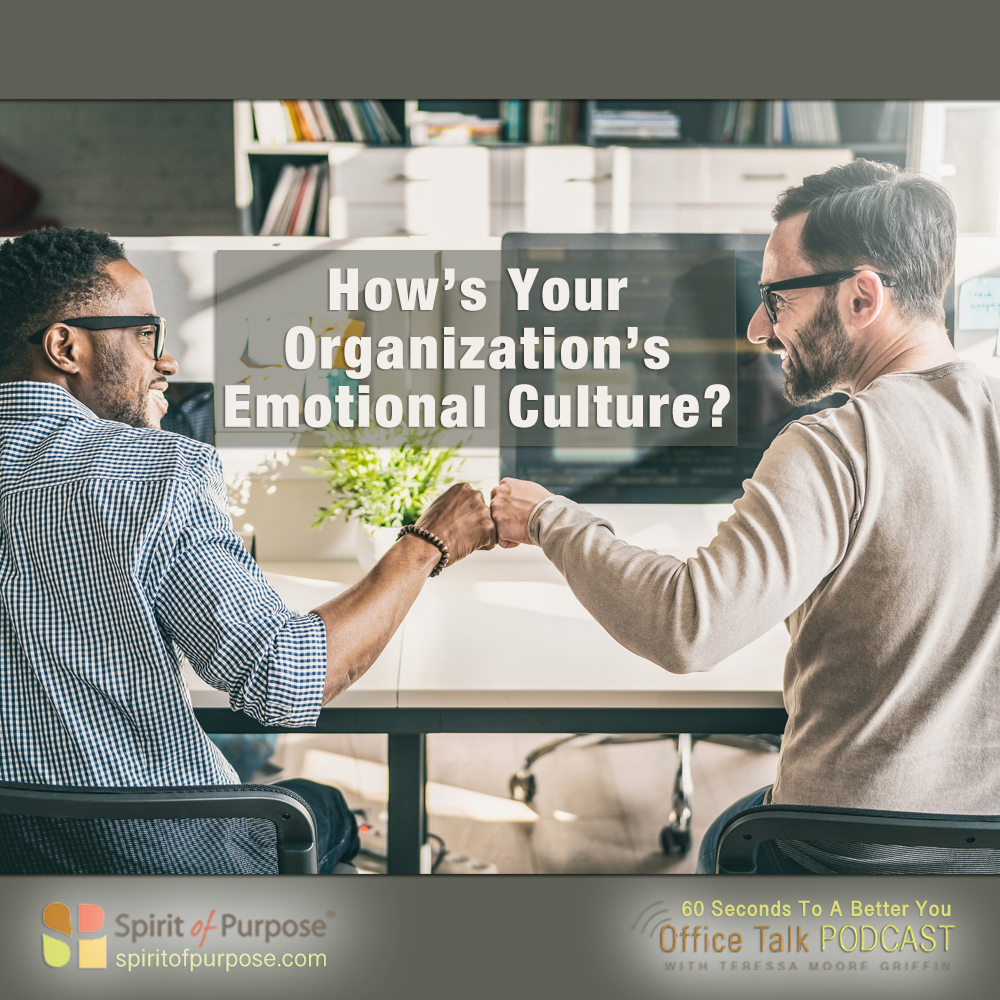PODCAST: How Is Your Organization’s Emotional Culture?
For quite some time, business culture experts have made the distinction between a workplace’s cognitive culture and its emotional culture. Cognitive culture, according to the Harvard Business Review, sets the tone for how employees think and behave. Are they, for example, customer-focused, innovative, team oriented, competitive?
Emotional culture is about shared affective values, and the norms and assumptions that govern which emotions people do or don’t express at work. What is or isn’t acceptable is often conveyed through nonverbal cues like body language and facial expressions.
Cognitive culture is vital, but companies that ignore emotional culture pay a price. Psychology today says that employees are like sensors that detect both problems and opportunities. Rather than dismissing emotions that could be labelled negative, leaders should seek to find out what lies beneath. And they should do so genuinely and authentically.


